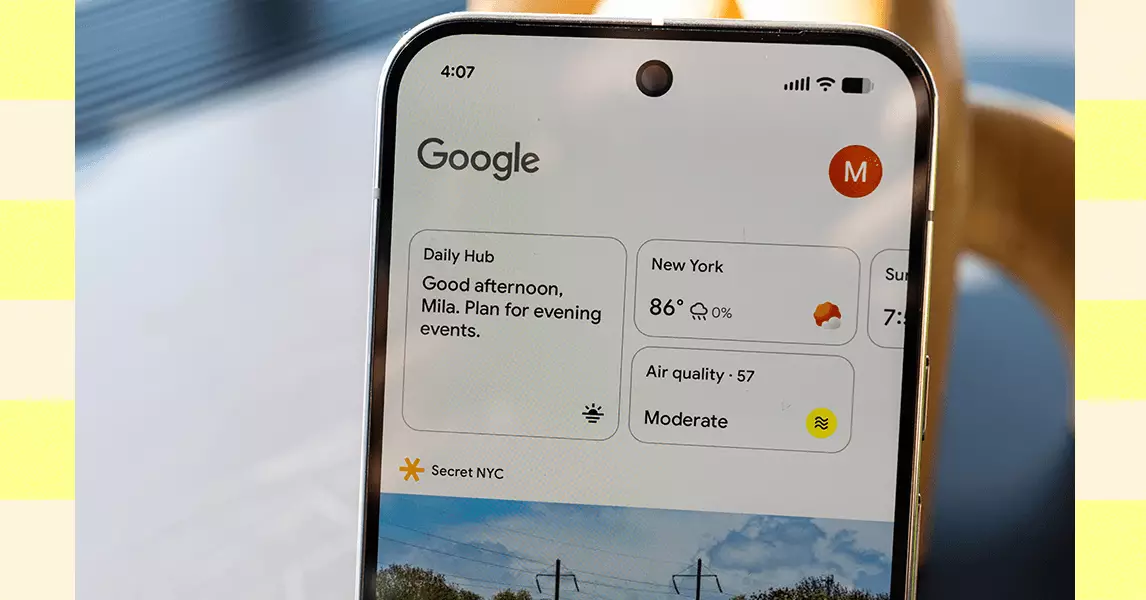In an era where data privacy and instant access are paramount, Google’s latest advancements in on-device AI marking a pivotal shift for modern technology. By harnessing its innovative Gemini Nano model—embedded directly within devices—the tech giant prioritizes user privacy and lightning-fast processing. This move signifies a departure from reliance on cloud processing, signaling a future where your smartphone becomes a self-sufficient hub of intelligence. It embodies the philosophy that high-quality AI should not compromise your privacy or require constant internet connectivity. Instead, Google’s approach demonstrates confidence in the hardware’s capacity to handle complex tasks privately, setting a new standard for what users can expect from their devices.
The Voice of the Future: Realistic Translations That Bridge Languages
One of the most compelling features showcased by Google’s recent developments is real-time translation that transcends mere text. Instead of static translations, Google now leverages advanced AI to generate voice approximations that sound strikingly like the original speaker. During a demo, a Google engineer spoke in German, and the system responded with a voice mirroring his tone and accent, translating into English almost seamlessly. This isn’t just a technological curiosity—it’s a genuine breakthrough in cross-lingual communication. By creating this personalized voice proxy internally, Google addresses privacy concerns while offering a richer, more natural interaction. The AI’s ability to grasp tone and inflection adds emotional nuance, making conversations across language barriers feel authentic rather than robotic. This innovation represents a significant leap towards truly universal communication in personal and professional contexts.
Empowering Personal Reflection Through AI-Assisted Journaling
Google’s new Journal application exemplifies the company’s push into mental well-being and personal development technology. Unlike traditional journaling apps, Google’s version employs artificial intelligence to prompt meaningful entries aligned with user-selected goals. The AI then reflects on the entries, providing insights that go beyond simple summaries—helping users understand their emotional patterns and mental state over time. Emojis serve as visual cues to the tone, making it easy to track emotional fluctuations month by month. While some might worry about data security, Google emphasizes that all inputs are stored locally and never uploaded, reinforcing a commitment to user privacy. This tool has the potential to foster mindfulness and self-awareness in ways that were previously accessible only through human coaching, now integrated seamlessly into your daily digital routine.
Streamlined Daily Management: From Smart Overviews to Effortless Assistance
Google continues to refine how users engage with information, exemplified by features like the Daily Hub. Borrowing ideas from competitors but executing with subtlety, this feature consolidates your calendar, reminders, and personalized suggestions into a single, unobtrusive interface. Whether accessed via the home screen widget or Google Discover, the Daily Hub offers a snapshot of your day—highlighting upcoming appointments, suggested activities, and relevant reminders powered by AI. It exemplifies intuitive design that melds into daily life without overwhelming the user. On devices like the Pixel Watch 4, Google has taken this convenience further, enabling voice activation simply by raising your wrist. These enhancements collectively transform passive notifications into active, personalized assistance, making technology feel less like a tool and more like a trusted companion.
Enhanced Interaction: The Future of Hands-Free, Context-Aware AI
Perhaps the most exciting aspect of Google’s recent breakthroughs lies in how AI interacts naturally with users. On Wear OS, the Gemini-powered assistant responds instantly without hotwords or buttons, transforming the smartwatch into a truly interactive friend. Its conversational prowess exceeds past limitations, allowing you to ask complex questions such as summarizing emails or suggesting wine pairings without sticking rigidly to scripted prompts. This evolution indicates a future where voice assistants are no longer confined to command-based interactions but become understanding, context-aware conversational partners. The implication is profound: daily tasks are simplified, and technology begins recognizing and adapting to our natural language, emotional cues, and preferences.
A New Chapter in Personal Technology Empowerment
Google’s development of on-device AI not only elevates individual privacy but also democratizes advanced technology, making sophisticated features more accessible without significant cloud dependence. With improvements in translation, personal reflection, daily planning, and natural language understanding, Google seems poised to redefine what users can expect from their mobile devices. This shift toward intelligent, self-sufficient hardware paves the way for a more seamless, private, and personalized technological experience—one that aligns with the evolving needs of the modern user. It’s a bold declaration that the future of AI isn’t in distant servers but right in the palm of your hand, waiting to transform everyday interactions into meaningful, efficient, and more human-like conversations.

